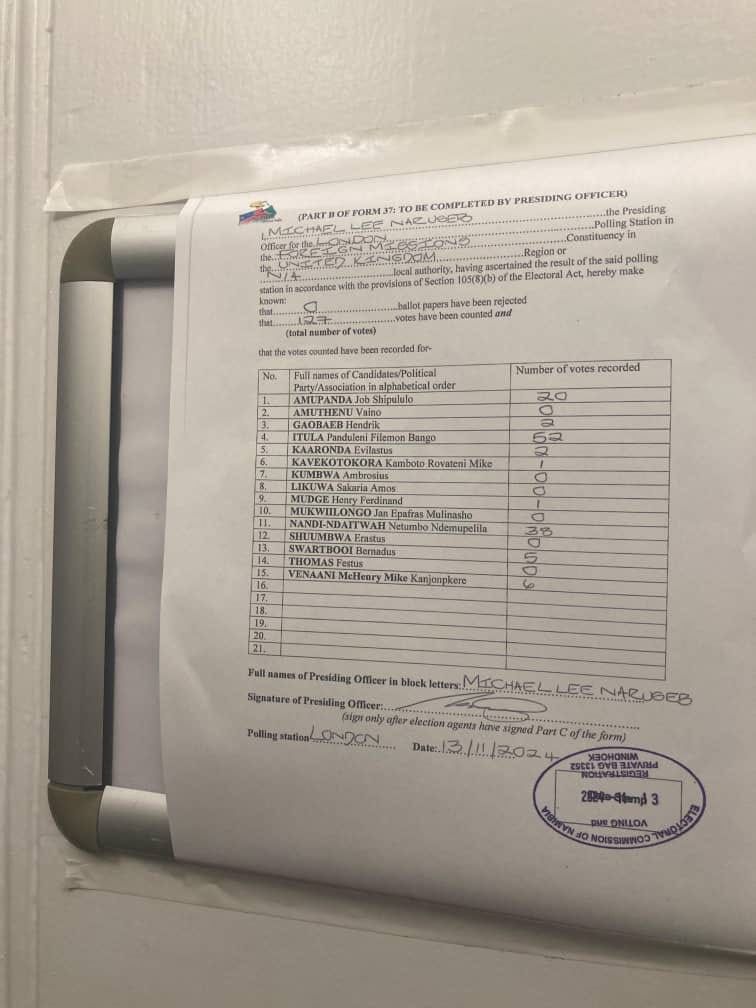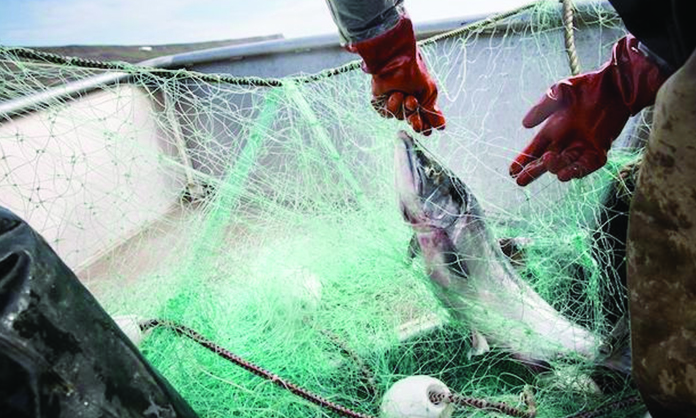A MONTH-LONG probe by officials from three Ministries into allegations of tender rigging and the supply of sub-standard food to school hostels and hospitals is all but concluded, says Permanent Secretary of Education Vitalis Ankama.
“I sent them an urgent memo today to finalise their deliberations,” Ankama said last Friday. The Ministry of Education ordered the probe in January after allegations of excessive use of additives in meat and milk products were reported in The Namibian.A committee was set up to investigate allegations against member companies of CAN (the Catering Association of Namibia) and their Norton Nineteen meat factory in Otjiwarongo.CAN and Independence Caterers’ lawyer Maren de Klerk has denied all the allegations.Independence Caterers MD Ed Davies also published full-page advertisements in Namibian newspapers denying the allegations.Meanwhile, samples of meat and milk products were taken from all regions for testing at both a local and a South African laboratory to see if they complied with contractual specifications for supplying food to hostels and hospitals.The probe came against the background of wider efforts to upgrade Namibia’s outdated food legislation and bring it in line with international conventions on food safety such as the United Nations-FOA’s Codex Alimentarex.Namibia acceded to the convention – which sets basic standards for food safety – some five years ago, but has yet to bring its own legislation into line.Because of a confusing mix of old legislation (some of dating back to 1919) and later ordinances passed, requirements for labelling food ingredients were not being adhered to, The Namibian has established.Existing legislation (Foodstuffs, Cosmetics and Disinfectants Ordinance No 18 of 1979) also determines that all sausage products should contain no less than 90 per cent animal protein (60 per cent lean meat and 30 per cent fat), but the contracts drawn up for caterers by the Ministry of Education’s Hostels Directorate allow as little as 65 per cent animal protein.The inter-ministerial committee, consisting of officials from the Ministries of Education, Agriculture and Health and Social Service, met outside Windhoek earlier this month to hear evidence from witnesses and industry experts.Initial indications were that the responsible officials – hostel and health inspectors – simply lacked the technical skills to assess whether food supplies met the contractual specifications.Confusion also existed as to which Ministry would be responsible for policing such legislation – abattoirs, for example, are controlled by local authorities, but the products they supply to the trade fall under diverse legislation controlled the Agriculture and Health Ministries.Questions were also raised over the use of additives such as sodium alginate and soya, which although not illegal, could pose a health risk to growing children and recovering patients.Soya could trigger allergic reactions in some people, and although sodium alginate is permitted in small doses, excessive use could be dangerous to people on salt-restricted diets, the committee was told by Namibia’s top food scientist, Silke Ruegheimer.The committee also heard evidence from Education’s Chief Hostel Inspector, Alida Botha, that no complaints have been raised over the quantity and quality of food supplied by the main hostel supplier, Independence Caterers.Independence holds the largest Education Ministry contract, which was recently extended until next year.The State spends about N$126 million a year on food for hostels, but parents are regularly asked to contribute more money to buy more and better food for their children.Ankama has vowed to make the findings of the committee public.”There is a huge public interest in this matter…the public has the right to know what is going on in our hostels and hospitals,” Ankama said when the probe started.* John Grobler is a freelance journalist; 081 240 1587The Ministry of Education ordered the probe in January after allegations of excessive use of additives in meat and milk products were reported in The Namibian.A committee was set up to investigate allegations against member companies of CAN (the Catering Association of Namibia) and their Norton Nineteen meat factory in Otjiwarongo.CAN and Independence Caterers’ lawyer Maren de Klerk has denied all the allegations.Independence Caterers MD Ed Davies also published full-page advertisements in Namibian newspapers denying the allegations.Meanwhile, samples of meat and milk products were taken from all regions for testing at both a local and a South African laboratory to see if they complied with contractual specifications for supplying food to hostels and hospitals. The probe came against the background of wider efforts to upgrade Namibia’s outdated food legislation and bring it in line with international conventions on food safety such as the United Nations-FOA’s Codex Alimentarex.Namibia acceded to the convention – which sets basic standards for food safety – some five years ago, but has yet to bring its own legislation into line.Because of a confusing mix of old legislation (some of dating back to 1919) and later ordinances passed, requirements for labelling food ingredients were not being adhered to, The Namibian has established.Existing legislation (Foodstuffs, Cosmetics and Disinfectants Ordinance No 18 of 1979) also determines that all sausage products should contain no less than 90 per cent animal protein (60 per cent lean meat and 30 per cent fat), but the contracts drawn up for caterers by the Ministry of Education’s Hostels Directorate allow as little as 65 per cent animal protein.The inter-ministerial committee, consisting of officials from the Ministries of Education, Agriculture and Health and Social Service, met outside Windhoek earlier this month to hear evidence from witnesses and industry experts.Initial indications were that the responsible officials – hostel and health inspectors – simply lacked the technical skills to assess whether food supplies met the contractual specifications.Confusion also existed as to which Ministry would be responsible for policing such legislation – abattoirs, for example, are controlled by local authorities, but the products they supply to the trade fall under diverse legislation controlled the Agriculture and Health Ministries. Questions were also raised over the use of additives such as sodium alginate and soya, which although not illegal, could pose a health risk to growing children and recovering patients.Soya could trigger allergic reactions in some people, and although sodium alginate is permitted in small doses, excessive use could be dangerous to people on salt-restricted diets, the committee was told by Namibia’s top food scientist, Silke Ruegheimer.The committee also heard evidence from Education’s Chief Hostel Inspector, Alida Botha, that no complaints have been raised over the quantity and quality of food supplied by the main hostel supplier, Independence Caterers.Independence holds the largest Education Ministry contract, which was recently extended until next year.The State spends about N$126 million a year on food for hostels, but parents are regularly asked to contribute more money to buy more and better food for their children.Ankama has vowed to make the findings of the committee public.”There is a huge public interest in this matter…the public has the right to know what is going on in our hostels and hospitals,” Ankama said when the probe started. * John Grobler is a freelance journalist; 081 240 1587
Stay informed with The Namibian – your source for credible journalism. Get in-depth reporting and opinions for
only N$85 a month. Invest in journalism, invest in democracy –
Subscribe Now!






